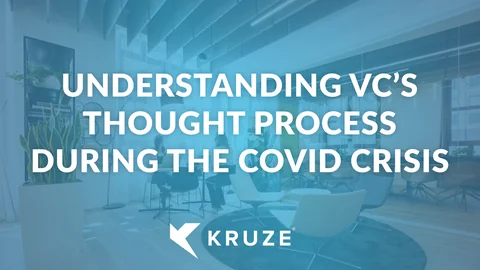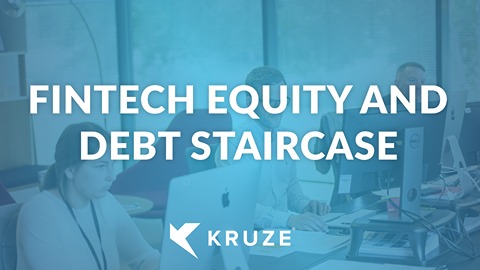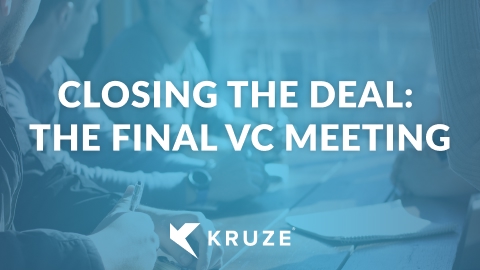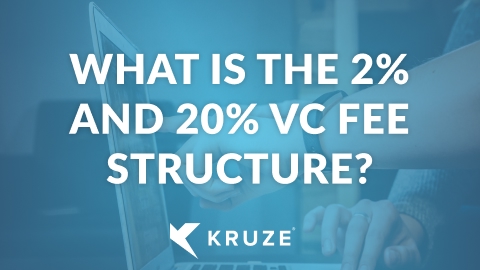
The COVID crisis has dramatically slowed down early-stage venture activity. Pitchbook, a data-provider, is reporting that deal flow has fallen sharply, with 4,675 funding rounds this year vs. 6,357 in 2019’s first half. Seed investments are off the most, with the number of deals decreasing by 45% to 803 vs. 1,447 deals done in the first half of 2019, with invested capital down to $2.2 billion from $3.3 billion.
So it’s clearly a lot harder to raise early-stage financing during the COVID crisis.
Our COO, Scott Orn, a former partner at a venture debt fund, has just put out two videos explaining more about the stressors VC funds are facing during these uncertain times.
Three factors decreasing VC’s investment pace during COVID
You can consolidate the drop in venture capital investing into three primary causes.
3 Factors Slowing VC Investment into Startups
- VCs are focused on helping portfolio companies survive
- Capital calls are harder
- Pricing / valuations are unclear
Let’s dig into these reasons more:
1. Venture capitalists have big portfolios of existing companies. When there’s a crisis, they need to spend time and energy working with their existing portfolio investments. They are doing things like helping those companies survive by cutting costs, redoing operating models, raising additional capital. And there are likely a ton of stressful board meetings. So they are much busier than normal working with the portfolio.
2. The second factor is capital calls become more difficult in tough times in the public stock markets. Thankfully, the stock market has recovered somewhat from the March and early April reductions, but when the stock market goes down it is an issue. When the market goes down a lot, it’s very difficult for the foundations, endowments, pension funds to fund the capital calls (these are the groups that are the primary funding sources for venture firms). When the stock market is down, those funding sources are not excited to sell shares in their public investments to fund venture deals. They’re contractually obligated to do it, but that means they’re selling public stock at the bottom. They’re much happier funding that capital call when things are good, the stock market is up because they’re liquid and they’re not taking a price discount. A second part of this issue is that these groups often have target allocations to the VC asset class - 20% or so. When the stock market drops, the value of their endowment/pension drops too, so that 20% allocation becomes less. So they are not happy to pull money out of stocks and into VC, since it can mess up their allocation. Watch this video to learn more:
The Stock Market’s Impact on Venture Investing
3. The third factor slowing venture investing right now is price discovery - no one knows what the right valuations are for private companies. In 2019, market participants - founders and VCs - had a good idea what a Series A, Series B, etc. should be valued at based on the various metrics. Right now, it is a lot more confusing. Everyone is doing a lot of negotiations and trying to figure out what the new prices for Series A, Series B, even angel investments are, and that takes a little while to work out. It takes some stability in the stock market. When the market is bouncing around with thousands of points drops and increases, it’s very confusing to everybody. Founders want to try to wait for the next pop so they can have a higher valuation; VCs don’t want to seem too stingy basing the valuation off of lower public markets pricing… it’s just a difficult time, and it takes a while for valuations to reset.
We have no idea when the crisis will pass. Our only really good advice is to stay focused on tight operations and keep executing your goals. And if you need financial advice, contact us!
Update in 2021 - now that the COVID crisis is moving behind us (hopefully!), it is clear that VC’s only slowed their investment pace for a tiny bit in 2020. Then, they opened the floodgates and had a record year of investing. If your company is raising this year, we recommend you check out our top 5 VC pitch decks list - we showcase some of the best pitches that we’ve seen on the internet, and include detail on the strategy you’ll want to have for each slide in your pitch deck.















